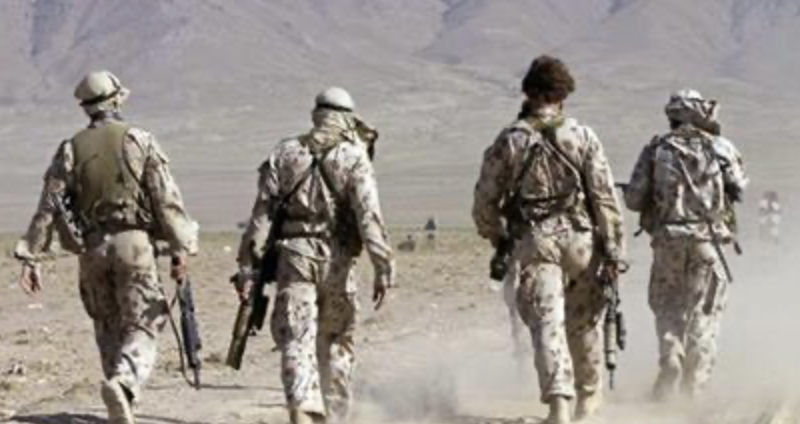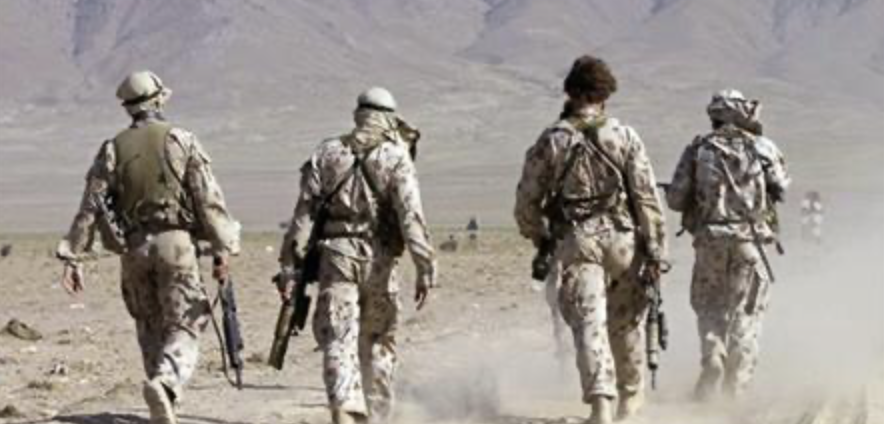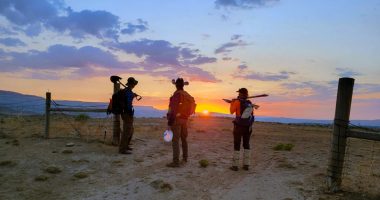- Royal Commission into Defence and Veteran Suicide to tackle “epidemic” of veteran suicides
- The inquiry will also highlight the urgent need for effective mental health treatments
- Veterans’ groups, including a former Australian defence chief, call for fresh thinking on psychedelics as a treatment for PTSD
- Companies such as Creso Pharma (CPH) and Halucenex, with links to veterans’ groups, among those who have welcomed the Royal Commission and its aims
Amid heightened concerns about the “epidemic” of suicide among returned Australian service people, Governor General David Hurley last week finalised details of the Royal Commission into Defence and Veteran Suicide.
The long-awaited inquiry will seek to examine and expose systemic flaws that have caused veteran suicides to rise to nearly twice the rate of the general population.
It will additionally highlight the urgent need for effective mental health treatments.
The inquiry will be led by former New South Wales deputy police commissioner Nick Kaldas. He will be assisted by former Queensland Supreme Court judge James Douglas and, importantly psychiatrist and national mental health policy leader Peggy Brown.
They are required to produce an interim report due by August 11 next year, before a final report on June 15, 2023.
FearLess approach to pressing problem
From 2001, 41 Australian troops died on the battlefield in Afghanistan. However also during that 20-year conflict, more than 500 veterans took their own lives. This means that every two weeks, on average, one Australian veteran dies by suicide.
Late last year Chris Mills, who helps run Townsville’s Veterans Support Centre, said the number of deaths represented an epidemic.
Around the same time, Tasmanian senator and veterans advocate Jacqui Lambie called for veteran suicides to be treated as “one of Australia’s most pressing problems”.
Recognising this opportunity for new approaches to this problem, even a former chief of the Australian Defence Force (ADF) has said psychedelic drugs should be rescheduled.
Retired Admiral Christopher Barrie was chief of the Defence Force from 1998 to 2002 and he is now chairman of FearLess, a charity supporting PTSD sufferers in Australia and New Zealand.
He is also a director of the not-for-profit, Mind Medicine Australia, which has been campaigning to expand psychedelic-assisted treatments for a range of mental illnesses.
Admiral Barrie said psychedelic drugs, such as psilocybin and MDMA, could be used to treat mental health conditions including depression and PTSD.
He said many veterans had trouble reintegrating into the community due to PTSD and overseas studies had shown treatments with psychedelics could help.
“The evidence is that those psychedelics are much more effective than any of the pills you might be prescribed,” he told the ABC in March.
“Some experts who are working in the field have told me the only way we’ll ever get a cure for PTSD is by the use of psychedelics.”
But Admiral Barrie said current research options were limited and rescheduling the drugs would expand opportunities.
“Let’s think about the cost to the community of not changing, not only in productivity terms, but in terms of suicide, people who’ve just given up hope because the treatments aren’t working, and to families — broken families and kids whose lives are being destroyed by their anguishes,” he said in the interview.
Governments take new look at psychedelics
Admiral Barrie is one of a growing number of experts across the globe calling for fresh thinking on the role of psychedelics in the treatment of PTSD.
MDMA has already proved successful, with a recent trial testing the drug in combination with talk therapy on 90 American PTSD patients finding it was safe and effective.
Many of the studies testing the role of psilocybin in helping those with PTSD are still in the early stages, but initial results in mice have proven successful.
Psychedelics, and in particular psilocybin, still remain illegal in large parts of Europe, North America and Australia.
However, as research has ramped up on this class of drugs, governments have become more open to legalising medicinal versions of the substances.
The Australia Government, for example, recently committed funding towards researching psychedelics for PTSD treatment, while several US states have begun legalising psychedelics.
One ASX-listed business focused on the world of psychedelics is Creso Pharma (CPH), with the cannabis company in the late stage of acquiring psilocybin business Halucenex.
Halucenex’s Canadian efforts
With a focus on the treatment of PTSD using novel psychedelic compounds, Halucenex has relationships with Veterans Affairs Canada and veteran support groups throughout North America.
The Canadian-based company is currently planning to carry out phase two clinical trials testing the effects of the active ingredient in magic mushroom on those with treatment-resistant PTSD.
It had intended to test psilocybin primarily on veterans and first responders, but recently expanded the trial after receiving an overwhelming number of inquiries.
Company founder and CEO Bill Fleming said while Halucenex’s key focus was on mental health treatment for veterans, widening the scope of the trial would help everyone involved.
“The inclusion of non-veterans in our pending clinical trial is a strategic decision that will provide a number of benefits to Halucenex and Creso Pharma,” Mr Fleming said.
“Expanding the trial scope will add to the growing body of evidence for psychedelic-based medicines and assist the company as it progresses further research and licensing agreements in North America and more broadly.”
Along with studying psilocybin, Halucenex has flagged examining other psychedelic drugs including LSD and MDMA.
Following its early trials, Halucenex said this class of psychedelic drugs, used in combination with traditional therapy, could outperform current treatments for PTSD and depression.
Royal Commission welcomed
Like Halucenex, Creso Pharma is dedicated to advancing the treatment for PTSD, which disproportionally affects veterans and other first responders.
Both companies have joined veterans and support groups in welcoming the formal announcement of the Royal Commission.
Non-executive Chairman of Creso Pharma Adam Blumenthal reflecting what will be the company’s ongoing commitment to PTSD treatment into the foreseeable future once its Red Light Holland merger is completed.
“The board and management welcomes the establishment of the Royal Commission as an important step in creating awareness for the debilitating effects of conditions such as PTSD,” he said.
“It is pleasing to see governments around the world push to lower veteran suicide rates.”
Mr Blumenthal said veterans and first responders gave so much to society and deserved the highest level of care possible.
“PTSD in first responders and veterans can be incapacitating and affect the quality of life of individuals and those around them,” Mr Fleming said.
“Halucenex is working to develop a potential breakthrough therapy to help the fight against mental illness. We look forward to monitoring the outcome of the Royal Commission and progressing our clinical trial initiatives to assist wherever possible.”
Mr Blumenthal said that he looked forward to working closely with Halucenex on upcoming clinical trial initiatives to find a potential solution to assist with the debilitating and often fatal condition.
If this article has raised concerns for you, please reach out to the support services below:
Lifeline – 13 11 14
Beyond Blue – 1300 224 636
The Defence all-hours Support Line – 1800 628 036
Open Arms – 1800 011 046
Soldier On – 1300 620 380








